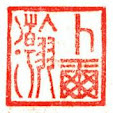The following has been posted on the WCF website today:
16th July 2011
It is with great sadness and sense of loss that we announce that Chan Master Dr John Crook has died suddenly at his home at Winterhead Hill Farm in Somerset, UK.
John was the first Western Dharma Heir of the late Chan Master Sheng-yen. He was the founding Teacher of the Western Chan Fellowship which is a lay Chan Buddhist community with members and associates in UK and Europe. He was a pioneer who brought great wisdom and creativity to the translation of Chinese Chan Buddhism into a Western context. Through the establishment of the WCF and the training of its leaders he has ensured that this work will continue.
Details of ceremonies will be announced on the WCF website when arrangements have been made
---
John is my teacher. His death is sudden and surprising news. When I saw John earlier this year he was physically and mentally very active and well. I read the latest New Chan Forum (43) yesterday, which he contributed to and edited, so I felt him and his teaching to be very near.
Gate, Gate, Paragate, Parasamgate, Bodhi Svaha!




